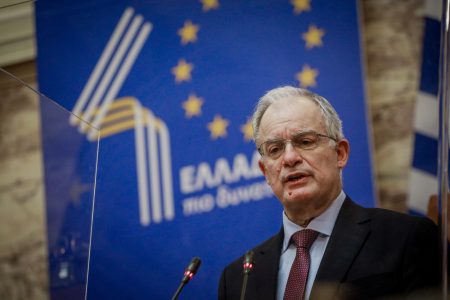Every mass demonstration, whether founded on emotions or expressing the concerns of citizens about their problems, must not be underestimated or overestimated.
The demonstration in Thessaloniki on Sunday is part of a long line of protests, in which history, myth and religious sentiment fuel patriotic or nationalist outbursts, which usually have provden detrimental for our history and national interests.
We experienced this in 1992 with FYROM, in 2000 with the church’s refusal to remove religious affiliation from police-issued IDs, and in 2010-2011 with anti-bailout memorandum protesters, and we are experiencing it again today.
Unfortunately, a country’s history, diplomacy and international relations are not written with shrieks and slogans, nor with the rhetoric of hatred, that revives old and news passions. Foreign policy is not formed by retired generals lacking historical knowledge, or with dogmatic hierarchs and demagogic politicians.
A segment of society may become disgusted by ideological fixations, be led astray by ignorance or emotion, or become enraged by a perceived national injustice.
Political leaders, however, if they are real political leaders, are not allowed to follow successive social currents, while ignoring the broader national interest and conducting politics with opportunistic and petty partisan criteria.
Unfortunately, once again, with few exceptions, our political leaders on the FYROM naming issue, are placing first what they consider their parties’ interests.
While they know very well the history and the political realities, and the sensitivities that have developed in a significant segment of society, they chose once again come out in favour of transmitting a divisive social dispute to society.
The government, instead of shaping a minimum national consensus, chose to divide the opposition, disregarding the repercussions, which it is reaping now.
On the other hand, the main opposition party fell into the trap, and in order not to disturb intra-party balances, it became subjugated to national-populist outbursts and fears of the deepest Greek conservatism.
Everyone knows that no demonstration, however massive, can resolved any national issue.
Greece, on the FYROM naming issue and other matters, needs leaders who will dare to tell the truth, however unpopular it may be.
We need leaders who will support the broader national interest, even if ittemporarily clashes with personal and partisan gain.
Unfortunately, not for the first time, our leaders have proven themselves unable to rise to the occasion.



